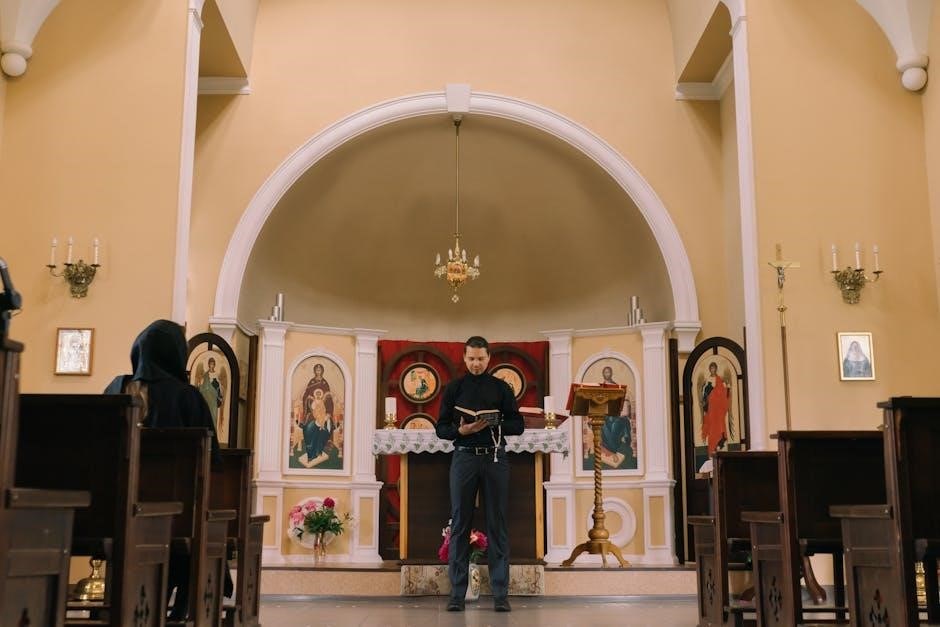Jennifer Saint is a Sunday Times bestselling author known for her captivating retellings of Greek mythology. Her novels, Ariadne and Elektra, explore the complexities of mythological worlds through strong female perspectives, blending historical depth with modern resonance.
Overview of Jennifer Saint’s Writing Style
Jennifer Saint’s writing style is immersive and emotionally charged, with a focus on strong female characters and their psychological depth. Her prose is lyrical, weaving vivid descriptions with a modern perspective on ancient myths. Saint excels at blending historical context with contemporary resonance, making her stories relatable. Her narrative often explores themes of identity, family, and fate, drawing readers into the intricate worlds of Greek mythology. The depth of her characters and the richness of her storytelling highlight her unique ability to reinterpret timeless tales for today’s audience.
Her Debut Novel “Ariadne” and Its Success
Jennifer Saint’s debut novel, Ariadne, garnered significant acclaim upon its release. The book was shortlisted for Waterstones Book of the Year 2021 and became a finalist in the National Book Award, showcasing its literary merit. It also achieved bestseller status in the Sunday Times, reflecting its widespread appeal. Readers and critics praised the novel for its fresh perspective on Greek mythology, particularly its focus on Ariadne’s story. The success of Ariadne established Jennifer Saint as a prominent voice in retelling classical myths, setting the stage for her subsequent works, including Elektra.
The Novel “Elektra” and Its Context
Set in the cursed House of Atreus, Elektra by Jennifer Saint delves into betrayal, revenge, and fate, interweaving divine intrigue and tragic legacy.

The House of Atreus and Its Tragic Legacy
The House of Atreus is steeped in a dark history of betrayal and bloodshed, marked by a generational curse. Originating from Tantalus’s feast for the gods, the family’s fate spiraled into chaos. Thyestes’s gruesome revenge, involving the cannibalism of his own children, deepened the curse. This legacy of violence haunts the descendants, including Agamemnon, Clytemnestra, and Orestes. Jennifer Saint’s Elektra explores this cursed lineage, weaving a tale of divine retribution, murder, and unending tragedy. The House of Atreus serves as a chilling backdrop for themes of fate and moral decay.
Retelling Greek Mythology in Modern Literature
Jennifer Saint’s Elektra offers a fresh perspective on ancient Greek myths, reimagining them for modern readers. By focusing on the emotional depth of characters like Elektra, Clytemnestra, and Orestes, Saint humanizes their struggles, making their stories relatable. Her approach highlights the timeless themes of family, betrayal, and fate, while infusing the narrative with a contemporary voice. This retelling not only honors the original myths but also introduces them to a new generation, proving the enduring relevance of Greek mythology in modern literature.

Plot Summary and Key Themes
Elektra explores the cursed House of Atreus, delving into betrayal, revenge, and the unyielding power of fate. The novel highlights the emotional turmoil of its female characters, offering a gripping tale of tragedy and resilience.
The Curse of the House of Atreus
The curse of the House of Atreus, rooted in ancient bloodshed and betrayal, hauntingly shapes the fate of its descendants. Jennifer Saint’s Elektra masterfully explores this generational cycle of violence, tracing its origins to the sins of Tantalus and Atreus. The curse manifests through brutal murders, adultery, and even cannibalism, creating a dark legacy that entwines the family. Saint’s vivid portrayal captures the psychological and emotional toll of this curse, particularly on the women, who are both victims and agents of its perpetuation. The novel underscores how the curse becomes a relentless force, driving the characters toward their doomed fates.
The Role of Women in Ancient Greek Mythology
In Jennifer Saint’s Elektra, the roles of women in ancient Greek mythology are vividly portrayed, highlighting their resilience and influence amidst patriarchal norms. Female characters like Helen, Clytemnestra, and Elektra navigate a world dominated by male power, often becoming central figures in shaping the narrative. Their stories, marked by both tragedy and agency, challenge the traditional perceptions of women in mythology. Saint’s retelling emphasizes their strength and complexity, showcasing how their choices and actions drive the plot forward, even in the face of societal constraints and divine interference.

Character Analysis
Jennifer Saint’s Elektra offers a profound character analysis of Elektra, Clytemnestra, and Helen, exploring their psyches, choices, and resilience amidst the cursed House of Atreus, shaping the tragic narrative through their strengths and vulnerabilities.
Elektra: AStudy of Her Personality and Motivations
Elektra: A Study of Her Personality and Motivations
Elektra, as portrayed in Jennifer Saint’s novel, is a deeply complex character driven by a fierce desire for justice, rooted in the tragic events of her family’s past. Her personality is marked by unyielding determination, a relentless pursuit of vengeance, and a profound sense of loyalty, which often conflicts with her own moral compass. Motivated by the curse of the House of Atreus, Elektra’s actions are shaped by her inability to escape the cycle of violence and betrayal that haunts her lineage. Her emotional depth and inner turmoil make her a compelling and relatable figure, even as she grapples with the darkness of her fate.
Clytemnestra and Orestes: Their Roles in the Tragedy
Clytemnestra, Elektra’s mother, is a figure of immense power and anger, driven by the tragic loss of her daughter Iphigenia. Her actions are fueled by a desire for vengeance, which sets the stage for the unfolding tragedy. Orestes, Elektra’s brother, returns home after years in exile, torn between his duty to avenge his father and the moral complexities of killing his own mother. Together, they embody the destructive cycle of violence and retribution that defines the House of Atreus.
Their roles highlight the devastating consequences of unchecked ambition and the unyielding grip of fate, central to the novel’s exploration of human frailty and divine justice.
Themes and Motifs
The novel explores themes of fate, betrayal, and revenge, delving into the destructive cycles of violence and the inescapable legacy of the House of Atreus.
The Inescapability of Fate and Destiny
In Elektra, Jennifer Saint intricately weaves the theme of fate and destiny, highlighting how the characters are trapped by the curse of the House of Atreus. The novel explores how divine decrees and ancestral sins create an inescapable cycle of violence and suffering. Through the lives of Elektra, Clytemnestra, and Orestes, Saint illustrates the futility of resisting fate, as each character’s actions are predetermined by the gods and their family’s dark past. This motif underscores the inevitability of tragedy, leaving readers with a profound sense of the unyielding nature of destiny.
Betrayal, Revenge, and Redemption
Betrayal and revenge are central to Elektra, as the characters navigate a web of deceit and retribution. Clytemnestra’s betrayal of Agamemnon sparks a chain of vengeance, while Elektra’s relentless pursuit of justice for her father drives the narrative. Jennifer Saint explores the moral complexities of these actions, revealing how they lead to both devastating consequences and moments of poignant redemption. The novel delves into the emotional depths of these themes, offering a nuanced portrayal of human nature and the enduring impact of betrayal and revenge on individuals and families.

Reception and Reviews
Elektra has garnered significant attention for its compelling retelling of Greek mythology. Critics praise Jennifer Saint’s vivid storytelling and nuanced character development, particularly in portraying strong female roles. Readers have embraced the novel for its emotional depth and fresh perspective on ancient tales, with many highlighting its ability to resonate with modern audiences. The book holds a 3.5/5 rating and is frequently recommended alongside other mythological retellings, solidifying its place in contemporary literature.
Critical Acclaim and Reader Responses
Elektra has received widespread critical acclaim for its masterful retelling of Greek mythology. Reviewers praise Jennifer Saint’s ability to weave intricate narratives with emotional depth, particularly in her portrayal of strong female characters. Readers have lauded the novel for its fresh perspective on ancient myths, with many highlighting its relatability to modern audiences. The book holds a 3.5/5 rating, with fans appreciating its vivid storytelling and nuanced character development. It has been recommended alongside other mythological retellings, further cementing its reputation as a compelling and thought-provoking read in contemporary literature.
Comparisons with Other Retellings of Greek Myths
Elektra is often compared to other renowned retellings of Greek mythology, such as Madeline Miller’s Circe and The Song of Achilles. While these works also explore mythological themes, Jennifer Saint’s unique voice shines through her focus on the House of Atreus and the emotional depth of her characters. Her ability to reimagine ancient stories with modern sensibilities has drawn praise, setting her apart in the genre. Like other successful retellings, Elektra captivates readers with its rich storytelling, resonating with both classic myth enthusiasts and contemporary audiences seeking fresh perspectives on timeless tales.
Availability and Formats
Elektra by Jennifer Saint is available in multiple formats, including PDF, EPUB, and MOBI. Readers can download it for free or purchase it from various ebook retailers online.
Downloading “Elektra” in PDF and Other Formats
Readers can easily access Elektra by Jennifer Saint in various digital formats. The novel is available as a PDF, EPUB, or MOBI file, ensuring compatibility with most e-readers and devices. Many online platforms offer free downloads, while others provide options for purchase. Additionally, some websites allow users to read the book online without downloading, making it convenient for those who prefer immediate access. This versatility ensures that fans of mythology and literary fiction can enjoy Saint’s work in their preferred format, enhancing the reading experience.
Where to Purchase or Access the Book
Elektra by Jennifer Saint can be purchased or accessed through various platforms. It is available in paperback and digital formats on major online retailers like Amazon and Barnes & Noble. E-bookstores such as Google Books and Apple Books also offer the novel for download. Additionally, many websites provide free PDF downloads, though some may require a subscription or purchase. Readers can also check local bookstores or libraries for availability. For convenience, the book can be accessed through online platforms that offer both free and paid options, making it widely accessible to readers worldwide.
Jennifer Saint’s Elektra leaves a lasting mark on modern literature, blending myth with contemporary storytelling. Her future projects promise to further enrich the literary world.
The Lasting Impact of “Elektra” on Modern Literature
Jennifer Saint’s Elektra reimagines ancient Greek mythology with a fresh, feminist lens, resonating with modern readers. By centering women’s stories, she challenges traditional narratives, offering new perspectives on power, fate, and identity. The novel’s vivid storytelling and emotional depth have captivated audiences, establishing her as a prominent voice in mythological retellings. Elektra not only revitalizes classical tales but also sparks conversations about gender roles and destiny, leaving a lasting impact on contemporary literature and inspiring future adaptations of mythological themes.
Jennifer Saint’s Future Projects and Contributions
Jennifer Saint’s future projects promise to further enrich the literary landscape. She has signed a major six-figure, two-book deal with Viking, with the first title, This Immortal Heart, reimagining the myth of Aphrodite and Ares. This upcoming work continues her tradition of blending mythology with contemporary insights, exploring themes of love, power, and identity. As her influence grows, Saint is set to remain a pivotal voice in redefining classical myths for modern audiences, ensuring her contributions to literature endure for years to come.
